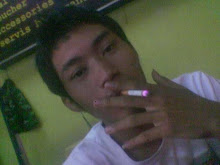SUN TZU ON THE ART OF WAR
THE OLDEST MILITARY TREATISE IN THE WORLD
孫子兵法
Translated from the Chinese
By LIONEL GILES, M.A. (1910)
XII. THE ATTACK BY FIRE
1. Sun Tzu said: There are five ways of attacking with fire. The first is to burn soldiers in their camp; the second is to burn stores; the third is to burn baggage trains; the fourth is to burn arsenals and magazines; the fifth is to hurl dropping fire amongst the enemy. 2. In order to carry out an attack, we must have means available. The material for raising fire should always be kept in readiness. 3. There is a proper season for making attacks with fire, and special days for starting a conflagration. 4. The proper season is when the weather is very dry; the special days are those when the moon is in the constellations of the Sieve, the Wall, the Wing or the Cross-bar; for these four are all days of rising wind. 5. In attacking with fire, one should be prepared to meet five possible developments: 6. (1) When fire breaks out inside to enemy's camp, respond at once with an attack from without. 7. (2) If there is an outbreak of fire, but the enemy's soldiers remain quiet, bide your time and do not attack. 8. (3) When the force of the flames has reached its height, follow it up with an attack, if that is practicable; if not, stay where you are. 9. (4) If it is possible to make an assault with fire from without, do not wait for it to break out within, but deliver your attack at a favorable moment. 10. (5) When you start a fire, be to windward of it. Do not attack from the leeward. 11. A wind that rises in the daytime lasts long, but a night breeze soon falls. 12. In every army, the five developments connected with fire must be known, the movements of the stars calculated, and a watch kept for the proper days. 13. Hence those who use fire as an aid to the attack show intelligence; those who use water as an aid to the attack gain an accession of strength. 14. By means of water, an enemy may be intercepted, but not robbed of all his belongings. 15. Unhappy is the fate of one who tries to win his battles and succeed in his attacks without cultivating the spirit of enterprise; for the result is waste of time and general stagnation. 16. Hence the saying: The enlightened ruler lays his plans well ahead; the good general cultivates his resources. 17. Move not unless you see an advantage; use not your troops unless there is something to be gained; fight not unless the position is critical. 18. No ruler should put troops into the field merely to gratify his own spleen; no general should fight a battle simply out of pique. 19. If it is to your advantage, make a forward move; if not, stay where you are. 20. Anger may in time change to gladness; vexation may be succeeded by content. 21. But a kingdom that has once been destroyed can never come again into being; nor can the dead ever be brought back to life. 22. Hence the enlightened ruler is heedful, and the good general full of caution. This is the way to keep a country at peace and an army intact.








No comments:
Post a Comment